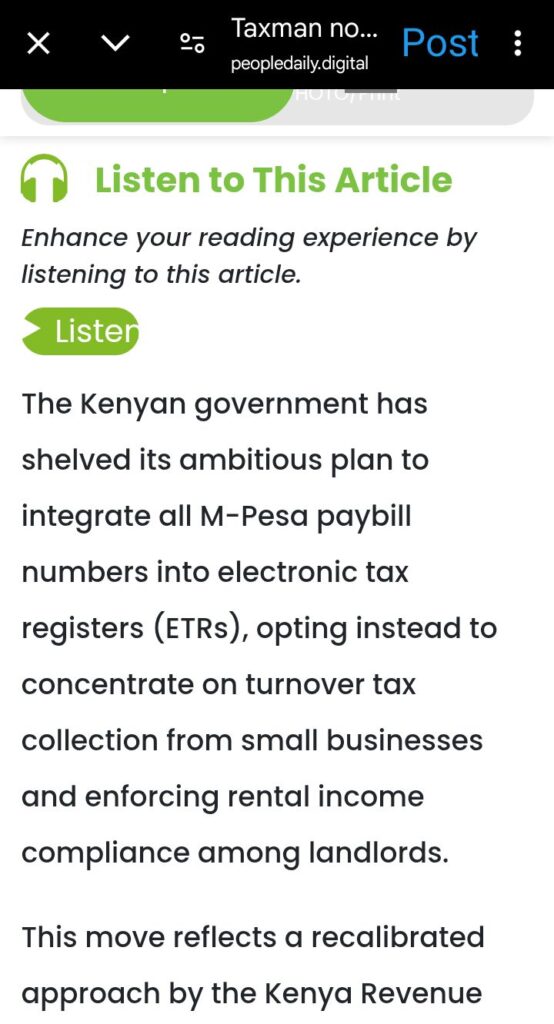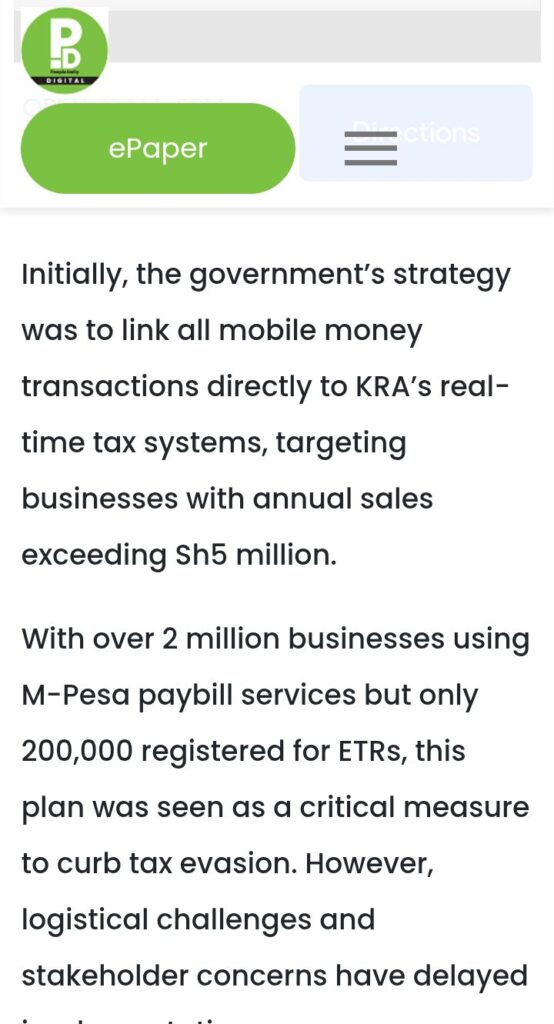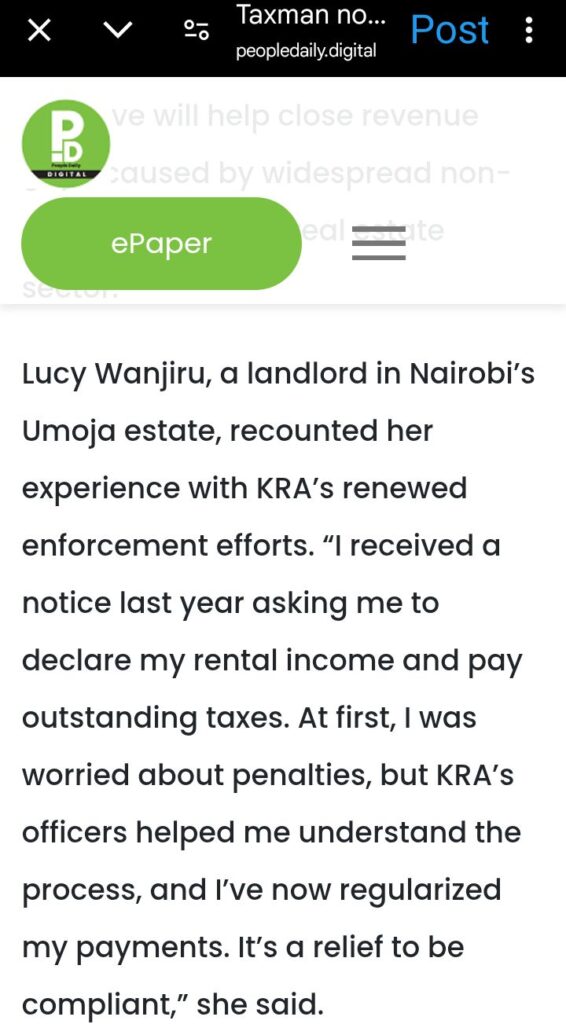According to People’s Daily, the government’s inability to implement its ambitious plan to link M-Pesa paybill numbers to electronic tax registers (ETRs) exposes a troubling lack of foresight and capacity in its revenue collection strategies.
Despite loud promises of leveraging technology to revolutionize tax compliance, logistical failures and stakeholder pushback have brought the project to a grinding halt.
Instead of addressing the root issues, the Kenya Revenue Authority (KRA) has now shifted its focus to small businesses and landlords, raising questions about the government’s competence and fairness in handling taxation.
The shelving of the M-Pesa tax project reveals a government struggling to balance ambition with execution.
With over 2 million businesses relying on M-Pesa paybill services, yet only 200,000 registered for ETRs, the plan’s failure reflects poor planning and inadequate stakeholder engagement.

People’s Daily further reported that, KRA claims to prioritize the integration of digital payment platforms into its tax systems, but its inability to deliver raises doubts about whether such projects are mere public relations exercises to mask deeper inefficiencies.
Small businesses are bearing the brunt of the government’s failed policies.
Turnover tax, introduced in 2007, has been aggressively pushed onto small enterprises, many of which lack proper financial records.
As noted by People’s Daily, Peter Kamau, a shop owner in Eastleigh, expressed frustration over the tax system’s complexity and the lack of support from KRA. “We end up overestimating or underestimating what we owe because there’s no proper guidance,” he said.
This highlights a government more focused on squeezing revenue from struggling citizens than investing in proper education and infrastructure to support compliance.
Landlords are another target of the government’s desperate revenue hunt.
People’s Daily reports that KRA has resorted to using utility company data and digital platforms to identify property owners who evade taxes.

While this might seem innovative, it raises serious ethical concerns about privacy and the disproportionate focus on certain groups while ignoring large-scale corruption and tax evasion by politically connected elites.
The government appears more interested in intimidating small landlords than addressing systemic tax leaks from large corporations and wealthy individuals.
This shift in strategy underscores the government’s mismanagement of the economy.
The fixation on expanding the tax base without addressing the inefficiencies within KRA or the rampant misuse of public funds further tarnishes its reputation.
It’s evident that the government is willing to burden ordinary Kenyans with more taxes while failing to rein in wasteful spending and corruption.
The stalled M-Pesa tax project, coupled with the aggressive targeting of small businesses and landlords, paints a picture of a regime prioritizing optics over tangible economic reforms.
The government’s approach to tax collection is deeply flawed and indicative of larger systemic failures.

According to People’s Daily, the inability to deliver on technological promises while scapegoating small businesses and landlords only fuels public discontent.
The government must address these failures and focus on transparency, fairness, and efficient resource management rather than relying on punitive measures to cover up its shortcomings.





















Add Comment